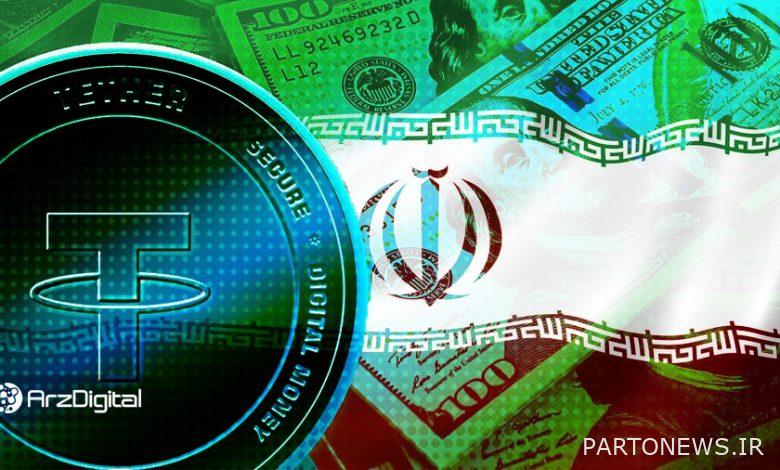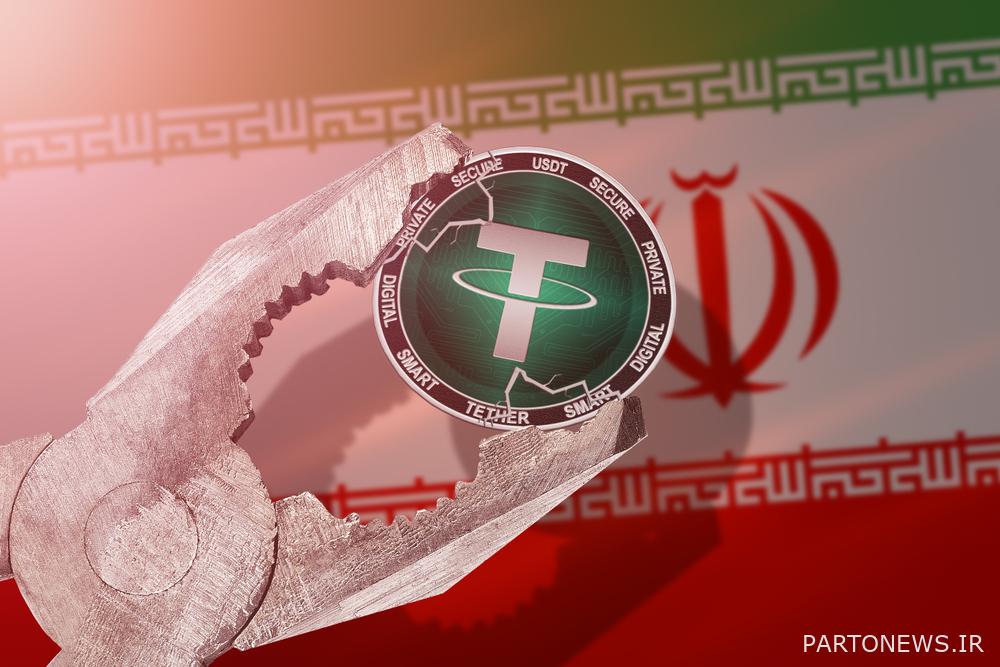Is buying and selling Tether a crime?

Holding and buying and selling Tether by individuals in Iran is not a crime and will not be subject to punishment except in special cases such as using it in illegal activities.
Due to the government’s increased sensitivity towards the currency market, the US dollar, and the imposition of various restrictions on its purchase and sale in recent years, some users may be concerned about whether it is possible to conduct transactions with dollar stablecoins, especially Tether (USDT). Should it be considered a crime or not? This question has different aspects that we have examined below.
Is it legal to buy and sell Tether in Iran?
Before answering the question, “Is buying and selling Tether a crime?”, it is better to take a look at the status of digital currency regulations in Iran. In general, the approach of legislative institutions in our country towards Bitcoin and other digital currencies is not transparent, like in most countries of the world.
Senior officials of the government and the parliament have different opinions about whether the transaction of digital currencies will be recognized in the countries or not. For example, Ali Salehabadi, the former head of the Central Bank of Iran, said in a television interview in August 1401, “Exchange and investment in digital currencies are not accepted and recognized by the Central Bank.”
Regulatory bodies continue to refuse to grant some official licenses to these businesses after years of domestic digital currency exchanges, but they have not stopped their activities completely.
On the other hand, some governing bodies regularly interact with domestic trading platforms, collect taxes from them, and the parliament recently passed a plan to levy capital gains tax, which also includes cryptocurrency trading.
However, citing Article 2 of the General Penalty Law and due to the lack of a specific law for buying and selling Bitcoin and other digital currencies, including Tether, trading these assets cannot be considered a crime. According to this paragraph: “Any act or omission that is punishable according to the law or requires protective or educational measures is considered a crime, and nothing can be considered a crime unless punishment or protective or educational measures are determined for it according to the law.”
Of course, keep in mind that buying and selling Tether and other digital currencies in Iran is legal as long as it is not a tool for committing another crime or does not violate upstream laws. For example, money laundering with Tether or doing other criminal activities will be subject to penal law.
Prohibition of digital currency trading by banks and financial institutions
The Central Bank of Iran announced in May 2018 that according to the meeting of the Supreme Anti-Money Laundering Council on January 9, 2018, the use of Bitcoin and other virtual currencies is prohibited in all monetary and financial centers of the country.
Of course, this ruling did not mean a complete ban on buying and selling or keeping digital currencies in the country and for natural persons. The ban on dealing in digital assets was previously also in place for banks, financial institutions and exchanges licensed by the central bank. Just by publishing this ruling, these financial institutions were officially banned from buying and selling Bitcoin and other digital currencies.
The Central Bank also does not issue any official license to establish an online exchange or a site for buying and selling digital currencies, and these companies continue to operate almost unofficially.
Of course, the Electronic Commerce Development Center has recently approved the granting of this material to domestic digital currency exchanges and published the mechanisms related to obtaining this material by these businesses. However, Abbas Ashtiani, the CEO of Iran Blockchain Association, says that this article cannot be included on the site, and it also does not mean that digital currency transactions are recognized by the government.
As a result, so far and in response to the question of whether buying and selling Tether is a crime, it should be said that keeping and buying and selling Tether by individuals or through digital currency exchanges in Iran is not a crime except in the special cases that we mentioned earlier. And naturally, he will not be subject to punishment.
The possibility of receiving taxes from Tether transactions in Iran
On May 11, 1402, the representatives of the Islamic Council passed a plan according to which the transfer of digital currencies will be subject to capital gains tax. It is supposed to prepare the executive regulations of this resolution within 6 months from the time of its approval and be approved by the Council of Ministers.
While the effect of this law on the buying and selling of digital currencies for Iranian users will depend on its provisions, according to some experts, it can be another step towards the recognition of digital currencies in Iran.
Mohammadreza Pourabrahimi, the chairman of the parliament’s economic commission, said in response to the critics of this plan:
Collecting taxes in the form of the above plan will not include 99% of the people and actually the subject of this plan is the profiteers.
In addition, the Guardian Council previously objected to another plan by the parliament under the name of banking plan, because of the reference to digital currencies without a clear legal definition for these assets, and according to experts, it may be the same for the capital gains tax plan for the same reason. be faulted
Poura Brahimi also said in this regard:
Until we resolve the definitions in a parent law, the Guardian Council will remove from the agenda and approve any reference to cryptocurrencies as a basis for discussion. Therefore, referring to this term (tokens) in the capital gains tax plan depends on the principle of the matter.
In sum, considering that the Parliament’s plan has not yet received the opinion and approval of the Guardian Council, it is not possible to give a definite opinion about the laws related to taxation of Tether transactions in Iran.
Ban on Iranian users and the risk of trading with Tether

In November 2018, the United States government officially imposed a new round of sanctions against Iran, which had been suspended three years earlier during the nuclear deal with world powers. The US Office of Foreign Investment Control, or OFAC, has written on its website that the use of digital currencies to conduct financial transactions with sanctioned individuals or entities is prohibited.
American entities that violate Iran sanctions may be fined up to $1 million for each violation, and the individuals involved may face up to 20 years in prison. Last October, the US Treasury fined Seattle-based exchange Bittrex $24 million for violating sanctions against Iran and other countries by processing digital currency transactions.
A Reuters report last November also revealed that Binance has processed about $8 billion in Iran-related transactions since 2018, despite US sanctions aimed at cutting Iran off from the global financial system. The US Department of Justice is investigating Binance’s possible violation of money laundering laws, putting the exchange at risk of prosecution for violating US bans on trading with sanctioned countries.
Contrary to what many users think, although Tether uses blockchain technology like Bitcoin, Ethereum or other digital currencies, it is a crypto asset. It is not decentralized And its developers are able to block the assets of an address if necessary. according to reportsSo far, Tether has blocked a total of 885 addresses with $461 million in balance.
In accordance with the part Terms and conditions of use of Tether services Iran’s name, along with Cuba, North Korea, Singapore, Syria, Venezuela and Crimea, is on the list of prohibited jurisdictions that cannot be used with Tether’s official website (nothing is said about other platforms) for depositing and Withdrawal of assets are related. In addition, the company explicitly states that it cooperates with legal entities to disclose the identity of customers and information about their activities, as well as to request the blocking of its Tether addresses if due process of law.
However, it should be said that Tether has not tried to block addresses related to a specific country to date, and all the cases that the developers of this stablecoin have blocked have been accused of participating in financial and cyber crimes.
Experts believe that, at least until this moment, it seems unlikely that Tether suppliers will want to freeze the assets of small investors in a few specific countries, such as Iran; Because this work can bring disaster from the security and economic aspects, and also from the technical point of view, it seems very difficult to block exactly only the addresses of Iranians and not to affect the citizens of other countries.
Also read: Concern about Tether being blocked for Iranians; How serious is the risk?
Is trading with Tether in foreign exchanges a crime?
Just like what we have said so far, Iran does not have a specific law about trading with Tether in foreign digital currency exchanges. Perhaps the mandatory authentication or customer recognition (KYC) process is the biggest challenge for Iranian users to use the services of some international platforms such as Binance.
Although there are still a number of digital currency exchanges that can be used without authentication, due to the increasing pressure of regulatory bodies around the world to fight money laundering, most of the reputable digital currency exchanges require users to authenticate.
Of course, it is possible to trade with Tether without the need for authentication in decentralized exchanges, which usually have their own limitations due to structural differences with centralized exchanges.
Conclusion
In general, there may not be a specific law in Iran regarding Tether trading in all sectors, but in response to the question of whether buying and selling Tether is a crime, it should be said that this activity is not considered a crime by itself. Currently, buying and selling Tether can be a crime in only one case, and that is using this digital currency to carry out a criminal activity.

